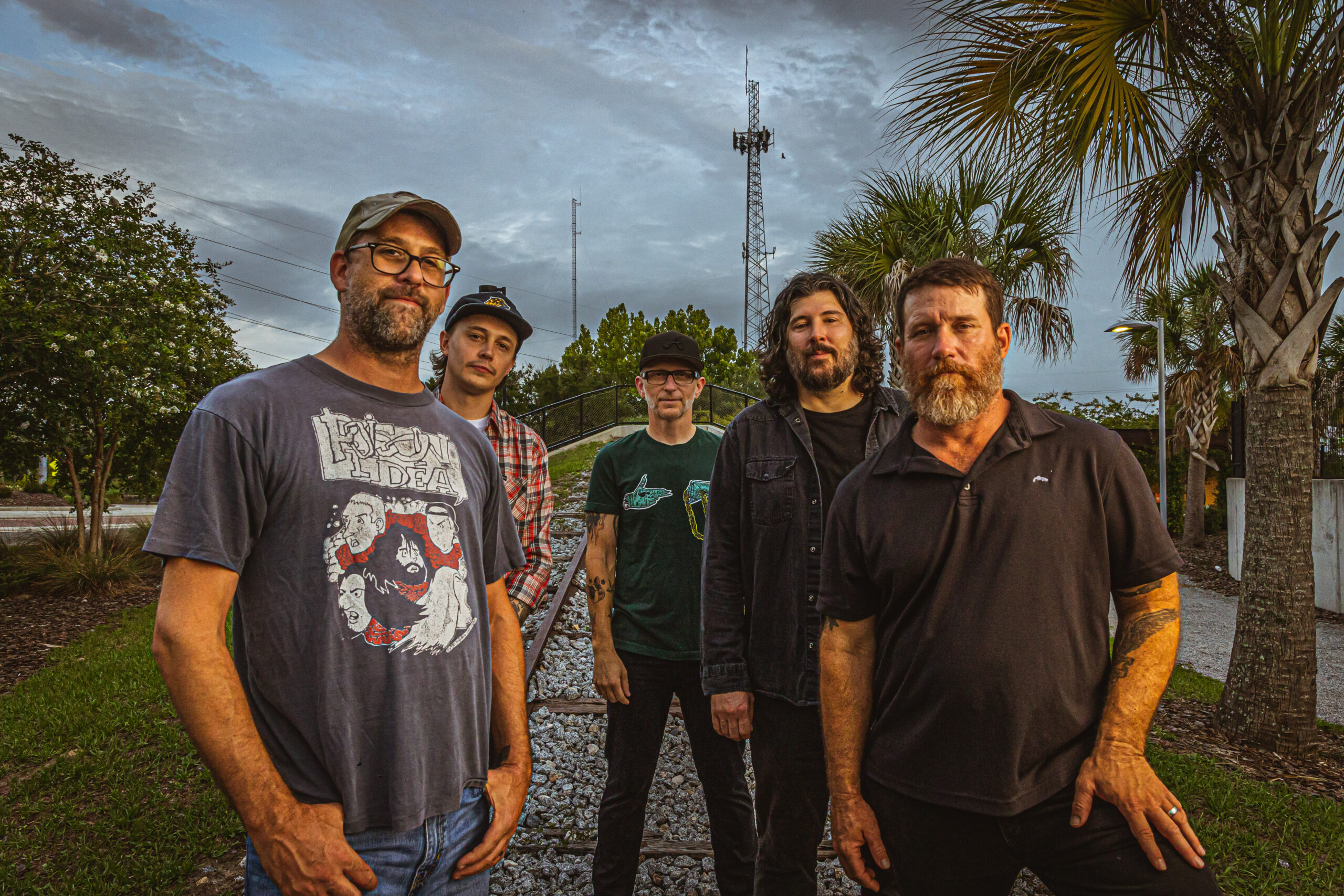
Hot Water Music are many things to many people. For some of us, they’re a scrappy group of bearded punks we saw play at a VFW Hall in the midwest in the ‘90s as kids (outside unironically played Foursquare and passed out Why Vegan pamphlets). Others discovered them on the Vans Warped Tour in the wake of 2002’s breakthrough album, Caution. Still more people found the band after they reformed in 2008 and signed to Rise Records, who released Exister and Light It Up. Some people are just now discovering the band for the first time, on the heels of their ninth full-length album, Feel the Void.
Feel the Void is also the first collection of music in their nearly 30-year history with a lineup shift, which comes in the addition of The Flatliners’ guitarist/vocalist Chris Cresswell. While Hot Water Music — whose longtime lineup is composed of guitarist/vocalist Chuck Ragan, guitarist/vocalist Chris Wollard, bassist Jason Black and drummer George Rebelo — has never experienced the same commercial success as many of the bands they’ve taken on tour, they’ve endured multiple break-ups, countless musical trends and a mental health emergency — all while never giving up. Talking to the members of Hot Water Music today, it seems that these challenges made the band even stronger.
“Here’s one of time passed, of a flight and a crash”
“A Flight and a Crash” (2001)
If you think that punk is dead, you’ve clearly never been to The Fest. For the past 20 years, dozens of punk bands have descended on the college town of Gainesville, Florida, leaving a trail of crushed tallboy cans, pizza-stained paper plates and broken guitar strings in their wake. However, in October of 2017, hometown headliners Hot Water Music were in full-on crisis mode.
“I was pulled over at the gas station at the Sacramento International Airport just before I was about to park and get on the plane, and George called me and said, “Hey man, I’ve got some wild news. Wollard’s not playing,” Ragan, who is now based in California, recounts. “Everybody was worried about him. We didn’t know what was going on. We were under the impression he had a heart attack and just about dropped dead in his place and was rushed to the ER, and we weren’t sure what was even gonna happen, you know? At the time, George said, ‘We think it’s panic. We think it’s anxiety and he can’t play.’ This [show] was like a mile from his house, so we knew it was something serious.”
The members of Hot Water Music only knew one thing, that they had to support their bandmate who was clearly having a serious medical issue. However, they also had a headlining set in front of thousands of longtime fans that day on a bill that also included acts such as Snapcase and The Flatliners. Although this situation wasn’t completely unprecedented — Ragan once played bass for the band when they performed as a trio for the Groezrock festival in Belgium — the band’s hometown show wasn’t exactly the ideal situation to try out an alternative lineup. Cresswell’s name instantly came up as a possibility of someone that could share the fill-in duties for part of the set, and although he had just returned from a six-week Flatliners tour and was feeling sick, he agreed to play the show… even if he doesn’t remember it.
[embedded content][embedded content]
“I blacked out onstage,” explains Cresswell, who learned a handful of Hot Water Music songs the day of the show in addition to performing with his own band earlier in the day. “I don’t remember the set. I wish I did. I know it’s probably on YouTube, but I can’t watch it because I’m terrified. But the second day, we did a secret set, and that one felt great. After that show, [Ragan] took me aside and pressed his forehead against mine and looked me right in the eyes — our eyeballs were basically touching — and just thanked me and asked, if it came to it, if I’d want to do this again, because they had some shows coming up.”
Cresswell agreed and became more ingratiated with the band, recording back-up vocals on their 2019 EP, Shake Up The Shadows, and handling Wollard’s guitar and vocal duties when performing live.
“There was no definitive starting point when the band said, ‘We’re going to make a record and you are going to be involved,’” Cresswell recalls. “The carpet just rolled itself out over time, you know?”
“Caution: The solid ground that you are on will slide from under you.”
“I Was On A Mountain” (2002)
For Wollard, the problems really started manifesting in the form of a natural disaster a month before, when Hot Water Music were scheduled to play Riot Fest in Chicago. The band was sharing the bill with the recently reunited punk legends Jawbreaker, an impressive way to kick off the promotion cycle for their 2017 album, Light It Up.
“Ten days before we left, [Gainesville] got slammed with one of the worst hurricanes that has hit this town, and it was fucking terrifying,” Wollard recounts. “We had to go stay at some friends’ house, and we lost power for a week or 10 days. We had live power lines in the yard, trees down, you couldn’t hardly drive around town.”
In the midst of this chaos, Wollard remembers looking at the band’s upcoming touring schedule and telling the rest of the band that he didn’t think he could leave his wife at home considering the carnage. Wollard was still unsure the day before the tour if he would be playing, but the lights at his house came back on that evening, and he decided to get on a plane.
“I called everybody and told them ‘I’m gonna pack my bags. I’ll see you at the airport at 7:00 in the morning,’” he says. “We get to Chicago the next day and it’s Riot Fest, so there’s a fancy hotel. Our roadies get the room to do some business stuff, so I’m sitting out on the sidewalk for an hour or so waiting for somebody to figure out where I’m supposed to go. For most people this is what they dream of. It’s a ridiculous posh hotel in the business district. But I feel like a fucking hobo cause I’m walking around with a guitar and shitty hoodie on, and everybody’s looking [at me] like, ‘What the fuck is this guy doing here?’”
At the time, Wollard wasn’t considering how the stress of the previous week had affected his mental health — and looking back, he admits that he wasn’t ready. He now realizes that the disorientation he experienced that day (he describes it as “feeling like an alien”) was a turning point and unfortunately, it didn’t pass before the band had to perform at the festival.
.
“I got to that show and I was fine, and then a few songs into it, I just started feeling dizzy and was like, ‘Oh shit, where are my feet?’” Wollard recalls. “I had to kind of spread my feet a little bit to get my ground. I was able to sing and play, but mentally I just had the spins in the weirdest way, and then I got done with the show and I just pretty much collapsed.”
Wollard was able to go back to the hotel to get some rest, but (in typical Hot Water Music fashion) the band had another show that evening at Cobra Lounge. For this show, Wollard insisted that they do songs mainly where Ragan handled the vocals, because he started to get dizzy every time his heart would start racing onstage. Wollard made it through the Cobra Lounge show, got back to Florida and started cleaning up after the hurricane in an effort to get back to normal. But that’s when things really started to get scary.
[embedded content][embedded content]
“I’d been home for a few days, and my wife and I sat down to dinner, and before I even had a bite, it was like, ‘Holy shit, I can’t breathe,’” he explains. Wollard’s wife thought he was having a heart attack and he agreed to go to the hospital if it happened again. A few days later, it did.
“I was in there for like 11 hours, and they’re doing X-rays, CT scans, multiple blood tests, all kinds of shit,” he says.
Eventually, it was determined that what he was experiencing was not a heart attack, but most likely extreme anxiety attacks. Wollard wasn’t initially convinced, so he began to see a long string of specialists to try to determine where his dizzy spells were coming from (he believed it was related to his inner ear). He then began seeing a therapist and getting on medication, and that helped, but it took about a year to get to that point. During that time, it was difficult for him to drive, let alone perform onstage for massive crowds.
“I saw some really brilliant doctors and it all kind of kept coming back to ‘Nothing is really different, bud,’” Wollard recalls with a laugh. “‘You’ve been going through this your whole life. When you were younger, you coped in this way, and then later you coped in this way, and now you’re in your mid-40s — and if you push yourself like this, this is probably going to keep happening. So what can we do to make sure we don’t end up at this point?’
“That started the process of figuring out who I am, which is a weird thing to say at this age,” he continues. “I knew who I was, but more recognizing who I am and accepting it. I’m not a ‘looking out for number one’ type of guy, but it was obvious I had to spend some time getting my bearings again — and possibly mega life changes need to happen.”
These days, a lot of musicians talk about the mental health tolls of touring, but back when Hot Water Music were doing countless laps around the country in a cargo van, this simply wasn’t part of the conversation. Today, Wollard recognizes that he was often nervous onstage during the band’s shows, preferring to let Ragan speak between songs. Looking back, he also sees that many of his lyrics eerily foreshadow this type of situation.
On one of his best-known songs, “Trusty Chords,” Wollard sings “I just can’t seem to get away, there’s no such thing as escape. Even with the sedatives, you’re always in the same state.” In order to move beyond that state, he had to find a new way to exist within the context of Hot Water Music — and the band also had to find a way to support their bandmate through something they couldn’t fully understand at the time.
“I believe that these lines will hold, so we all don’t go drifting out with the tide on the outbound.”
“Hearts Stay Full” (2022)
“I don’t know if making Feel the Void felt very different, obviously outside of having five of us in the band, because we were working with [producer Brian] McTernan again,” Black explains when asked about the process behind the band’s latest album. “He pushes us really well, and I think he knows how to push us, which is great. I’m always the guy that gets pushed the least, so it was an awesome experience and everyone else can be mad about it.”
McTernan produced some of the band’s most celebrated albums, such as 2001’s A Flight and a Crash and 2002’s Caution, and despite his sometimes confrontational style, he has an innate understanding of Hot Water Music’s dynamics.
“[McTernan] and I butt heads countless times throughout the process of [making Feel the Void], but what’s amazing and what I love so much about him is that he’ll push you and prod you,” Ragan adds. “As much as it makes you want to throw a coffee table at him sometimes, he will get you to realize what it is you need to do. He has a way of bringing out the best of you as an artist.”
Correspondingly, Feel the Void captures all the elements that make Hot Water Music such an influential and vital act. From the melodic anthem “Habitual” to the syncopated splendor of “Killing Time” and introspective Wollard-fronted rockers like “The Weeds,” the album is a sonic snapshot of where Hot Water Music are right now. Inevitably it’s a far cry from the band’s celebrated ‘90s output like Fuel for the Hate Game and Forever and Counting, which saw Wollard and Ragan simultaneously shouting in a way that made them sound like a single entity over a bed of buzzsaw guitars and the band’s virtuosic jazz-inflected rhythm section. However songs from that early era like “Better Sense” and “Alachua,” don’t sound incongruous live alongside new songs like “Collect Your Things And Run” or Cresswell’s contribution “Turn The Dial.”
“I think it’s important to put out new stuff and to put out good stuff that people want to hear, because that’s really hard to do when you’re a band who’s been around as long as we have,” Black explains, adding that the passion fans have for a band’s nascent material can be a double-edged sword. “I think about Bad Religion, and I’m sure they struggle with that all the time when they make a new record, but everyone still wants to hear ‘Atomic Garden.’ Nobody’s mad about it, because we’re all still grateful to be around and still have anyone give a shit about what we’re doing.”
[embedded content][embedded content]
Another similarity between Bad Religion and Hot Water Music is the fact that Bad Religion guitarist and Epitaph Records owner Brett Gurewitz writes and performs on the band’s records, but doesn’t tour with them. This set a precedent for Hot Water Music’s current incarnation.
“If it weren’t for Bad Religion, I probably would never been able to picture what the fuck we’re doing right now,” Wollard says. “I’m not going to be producing. I don’t own the label. We’re not operating the way [Bad Religion] do, but I still want to be in the band. I just don’t know if touring is good for me right now, and I don’t want to commit to doing something that blows up again. That wasn’t an overnight thing, either. All of these are things you have to think about a lot — and I think they’re also things that are completely impossible to have happen unless you’re a band that has kind of grown up together. It just wouldn’t make any sense. We had to figure out what we were going to do, and that’s what we did — and we were lucky enough to have a support system that enabled us to do that.”
While the last five years have been a challenge for Hot Water Music, we’re talking about a band who has already broken up (albeit briefly) twice and never signed to a major label or had a mainstream radio hit — even when it seemed inevitable.
“When Caution came out, it felt like we were gonna blow up — it felt like something big was about to happen,” recalls Rebelo, who has also been the drummer of celebrated New Jersey punk act the Bouncing Souls since 2013. “What ended up happening is that we saw all the bands we took on tour blowing up, and we would just kind of stay at the same level.”
From Thrice to Coheed and Cambria, countless bands inspired by Hot Water Music went on to have greater mainstream attention, but ultimately record sales aren’t the arbiter of success for the band.
“I play music for a living and I stopped caring about that stuff years ago,” Rebelo admits. “I’m grateful for what we actually have now. We just charted No. 3 on Billboard in Germany, so we get these little sprinkles of commercial success here and there, and that’s cool, but do I care? No, because I still get to play shows, make a living off it, and we still have a good attendance. It’s like what Wollard always says, ‘Slow and steady wins the race.’”
“We’re still here, scarred but here.”
“Moonpies For Misfits” (1999)
As cheesy as it may sound, Hot Water Music almost had to implode in order to survive, and Ragan credits the new guy for keeping the band alive.
“For me, going out and playing shows without Wollard — without my brother — If it wasn’t for Cresswell, I honestly don’t think I’d be sitting right here right now. I really don’t,” he says. “I believe in [Cresswell’s] energy and his voice, and then all of a sudden he became this light at the end of the tunnel for Hot Water Music for the time being. That kind of turned into this calling that made me realize how important the Hot Water Music family and community is that I’ve grown up with, you know what I mean? Hot Water Music became bigger than any one of us ever thought was possible. It grew in such a special, organic and meaningful way that it really means a lot to people, and it helps people.”
That said, it’s no coincidence that the band’s B-sides collection is called Till the Wheels Fall Off, and Ragan realizes how close the band have been to running itself into the ground over the years.
“We’ve sacrificed so much just to keep the wheels turning, and I don’t believe we owe anybody anything — but at the same time, I do recognize how special it is to people, and as much as I’d love to be sitting in a rocking chair with my son right now, I know that we’re on a mission, too,” he summarizes. “I don’t think it would have continued to happen the way that it did — and I definitely don’t think we ever would have gotten to the point of what Feel the Void became — if it wasn’t for the full-team effort.”
Like many of their peers, Hot Water Music could eschew writing new music and tour solely on the schedule of anniversary tours supported by their extensive back catalog. But Hot Water Music have never done things the easy way. To borrow a Hot Water Music lyric that was already inked on Cresswell prior to him joining the band, “Live your heart and never follow.”


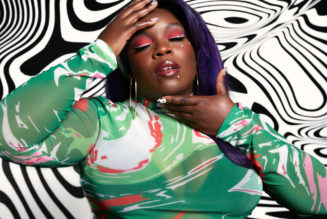
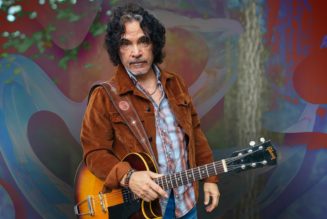
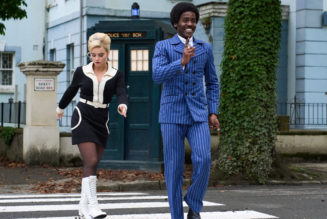
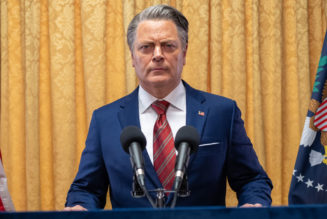

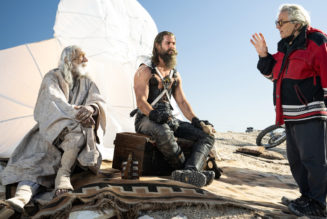
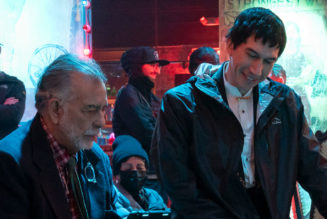

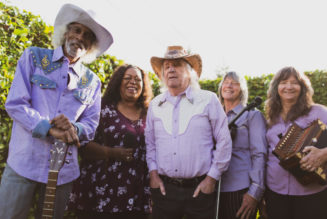
Tagged: hot water music, INTERVIEWS, Mental Health